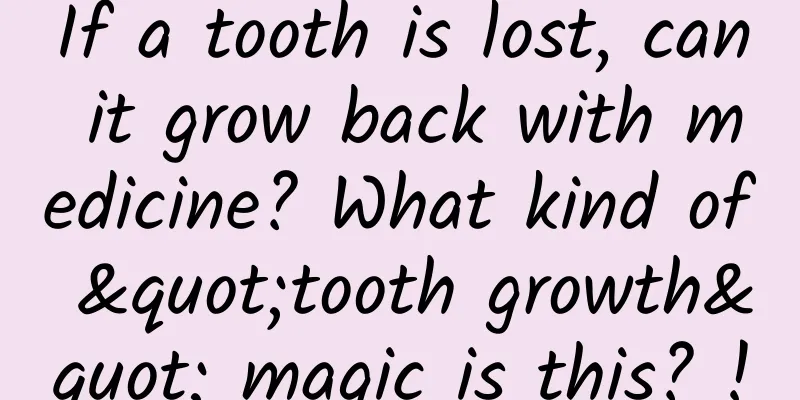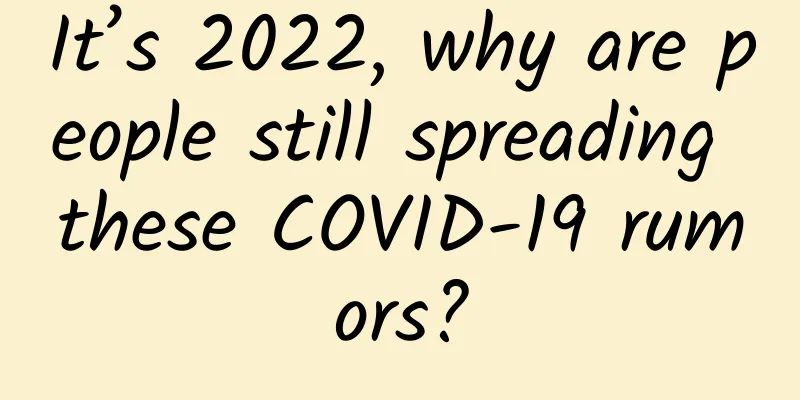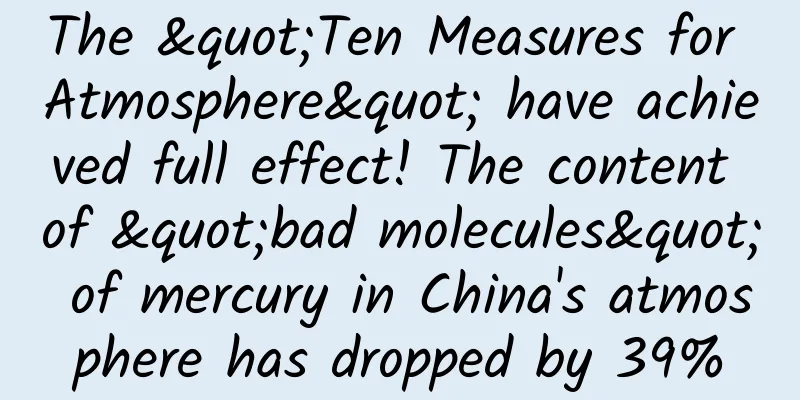If a tooth is lost, can it grow back with medicine? What kind of "tooth growth" magic is this? !

|
Author: Huang Yanhong, Huang Xianghong, Duan Yuechu Teeth are vital to our daily lives. However, whether it is congenital tooth loss or tooth loss due to tooth decay, injury, etc., it brings a lot of inconvenience to people. Although common treatments such as dentures and dental implants can make up for missing teeth to a certain extent, they are ultimately not comparable to naturally grown teeth. However, a recent new study by Japanese scientists may bring a new solution to this problem. During the long process of evolution, mammals, including humans, gradually lost the ability to continuously regenerate teeth like sharks. For some rodents, such as mice, they only have one set of teeth in their lifetime, and once the teeth fall out, they cannot regenerate. In contrast, humans are in a slightly better situation. They grow deciduous teeth during infancy and are later replaced by permanent teeth. Once permanent teeth are lost, new teeth usually do not grow out. Katsushi Takahashi, chief researcher and chief of dental and oral surgery at Kitano Hospital, the Institute of Medical Sciences in Osaka, Japan, has been working on finding a way to help people regrow teeth since he was a bachelor's student in dental medicine and later as a graduate student in molecular biology. Many people in the world are born with missing teeth, which causes great trouble in their lives. Congenital tooth loss may be caused by genetic defects or environmental factors in early development, such as viral infections. Over the years, researchers around the world have discovered some genes related to tooth loss. Around 2005, Takahashi returned to Japan to continue his research and made an important discovery in a disease that is the opposite of tooth loss: "excessive teeth." Previous studies have shown that mice that lack the gene that synthesizes the USAG-1 protein have more teeth. After years of exploration, Takahashi's research team has clarified the mechanism. Usually, deciduous teeth are called the "first dentition" and permanent teeth (except molars) belong to the "second dentition". Generally, there will be no new teeth after these two rows of teeth. However, some studies have pointed out that humans and some mammals have the potential to develop new dentition epithelial tooth bases on the tongue side of permanent teeth, but they will die during growth under normal circumstances. The USAG-1 protein can inhibit bone morphogenetic protein (BMP) and Wnt during tooth development. Patients or mice with "excessive teeth" often have defects in the gene encoding USAG-1, which prevents BMP and Wnt signals from being effectively inhibited, resulting in the growth of some new teeth. Based on this discovery, Takahashi's team successfully developed a neutralizing antibody that can inhibit the binding of USAG-1 to BMP in 2018, and was successful in experiments on mice and ferrets, allowing them to grow normal-shaped teeth with no side effects. Now, they have further developed TR035, a tooth growth drug for humans, and have been approved by relevant Japanese agencies to conduct Phase I clinical trials from September 2024 to August 2025. First, they will recruit men aged 30 to 65 with one or more missing molars for a single-dose, double-blind, placebo-controlled trial to confirm the safety of the drug. Next, they will recruit patients aged 2 to 7 with 4 or more congenitally missing teeth to explore the effect of the drug. The research team is confident that this drug will not only help people born without teeth grow teeth in the future, but also help those who have lost teeth due to tooth decay or injury to regenerate teeth. According to the plan, the drug is expected to be available on the market in 2030. This research result undoubtedly brings new hope to many patients with missing teeth. Perhaps in the near future, humans no longer need to envy sharks' tooth regeneration ability, but can rely on the power of science to regain complete and healthy teeth. Let us look forward to this dream becoming a reality soon. |
<<: Is it true that we cannot use air conditioning all the time in summer?
>>: Why do people drink ice beer when eating crayfish, but no one drinks ice liquor?
Recommend
Which Wenchang Pagoda is the most effective? The truth is finally revealed!
Wenchang Tower is the most common Feng Shui masco...
Should I run through the airport or arrive 2 hours early? Economist: Arriving early is a waste of life
Today is the first day of the May Day holiday. I ...
Are those 9-yuan WeChat group courses that are all over the place worth buying?
I don’t know if you’ve felt this way recently. Th...
The first duopoly in the refrigerator and washing machine industry: Chinese and foreign giants have been struggling for years but to no avail
From the "Four Golden Flowers" in the r...
Come and see! Today the moon is "blushing" and comes with a big Easter egg
Today, the most exciting astronomical phenomenon ...
The three-way handshake and four-way wave process of TCP protocol
1. TCP/IP protocol suite TCP/IP is a protocol fam...
The mobile phone market is saturated and needs to be transformed. HTC wants to make a comeback with VR?
On April 26, the virtual reality device HTC VIVE ...
What is the best JavaScript framework for mobile and desktop applications in 2021?
This article is reproduced from the public accoun...
Why do those marketers make low-quality ads but make more money than you?
Let me introduce two people to you. Do you think ...
Android immersive status bar implementation
More and more apps in the app market have immersi...
“Never seen him in Beijing before”, who is this “mysterious guest”?
Audit expert: Wang Lei National Parks and Conserv...
National Scallion Geography
Written by Wei Shuihua Header Image | Daily Food ...
Why do animals experience rigor mortis after death, but supermarket meat does not?
People who like to watch detective movies and rea...
Do soy products increase uric acid? Can soda water lower uric acid? What you know may not be the truth!
Author: Wang Hailong, Chief Physician, Dongzhimen...
Classic fighting game comes to the big screen TV version "Exile Blade" closed beta experience
Screen: operate: Sound Effects: Plot: Experience:...









